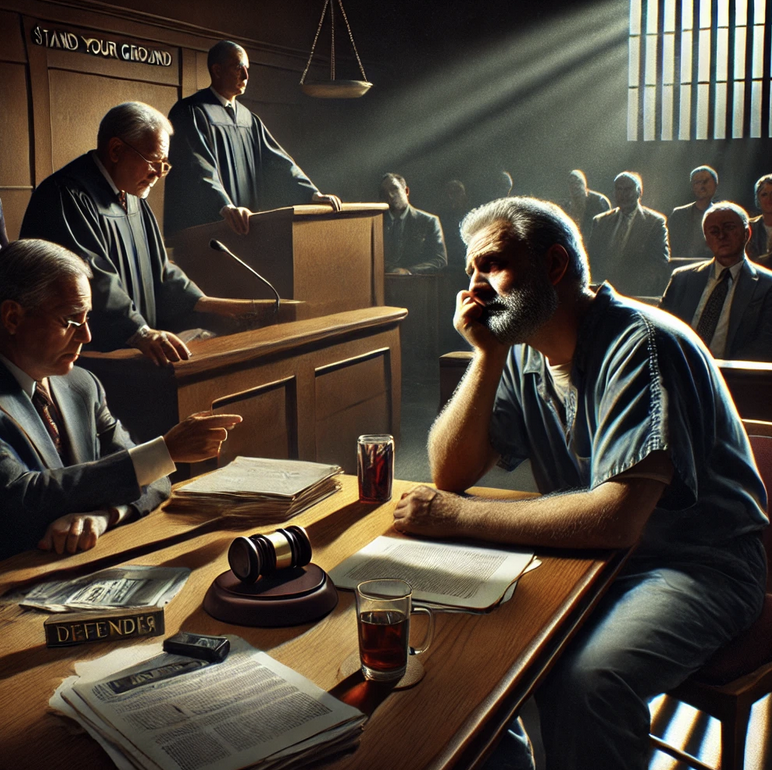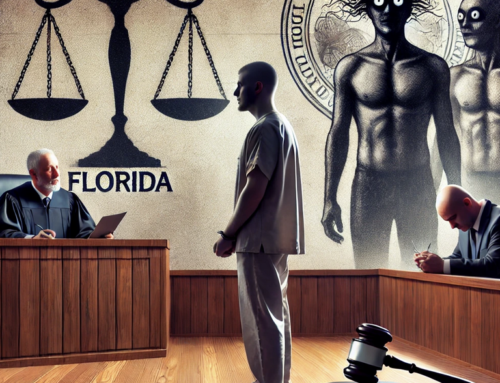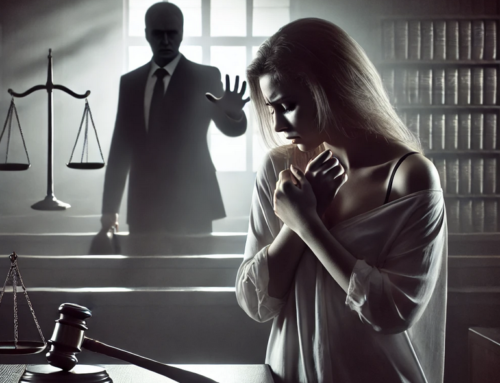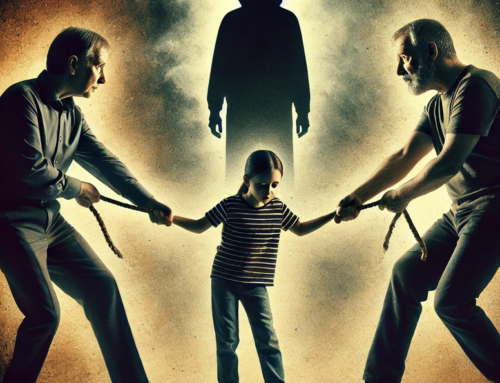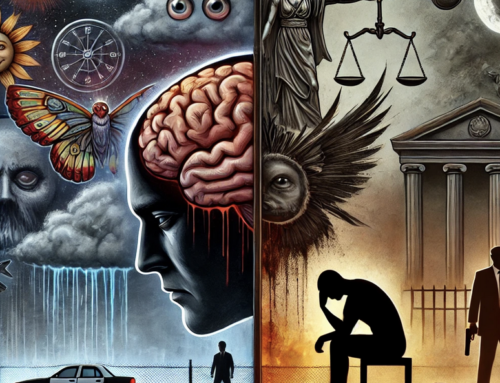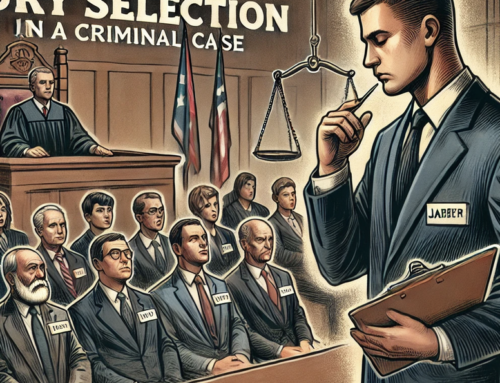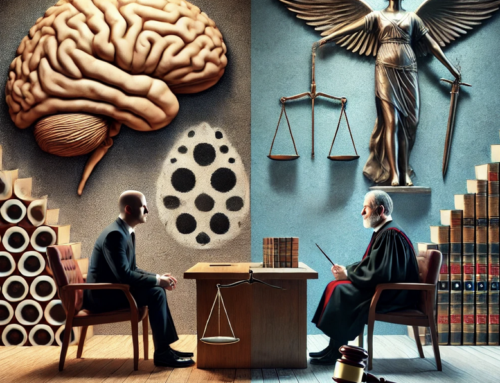As a criminal defense attorney practicing in Florida, understanding the nuances of the state’s Stand Your Ground laws is crucial not only for defending clients but also for comprehending the broader implications these laws have on the criminal justice system. What’s equally important is having the capacity to appreciate the situation from the defendant’s perspective. When individuals find themselves facing charges under Florida’s Stand Your Ground laws, the legal battle is only part of the ordeal. The psychological and emotional toll on the defendant, their family, and their community can be profound. This post explores what we have witnessed first-hand as practicing Stand Your Ground attorneys regarding the personal journey of a criminal defendant navigating the complexities of Florida’s Stand Your Ground laws, which will hopefully provide a deeper understanding of the human impact behind these legal battles.
The Initial Confrontation: A Moment of Fear and Instinct
For many defendants, the events leading up to the use of force are often chaotic and terrifying. In the heat of the moment, when confronted with what seems to be an imminent threat, the decision to use deadly force is made in a matter of seconds. From the defendant’s perspective, this decision is driven by a primal instinct to survive rather than a calculated choice. Imagine being in a situation where someone is advancing towards you aggressively, perhaps with a weapon or making threats that you believe could end your life. In such moments, your perception of time slows, and your senses heighten as adrenaline courses through your veins. You are not thinking about the legal ramifications or the finer points of self-defense laws; your only thought is to protect yourself and perhaps your loved ones from immediate harm.
After the confrontation, the realization of what has occurred begins to set in. You are faced with the aftermath of your actions—perhaps someone has been seriously injured or killed. The gravity of the situation can be overwhelming. The initial relief of surviving the encounter is quickly replaced by fear of the legal consequences that may follow.
The Arrest and Legal Process: An Overwhelming Experience
For many defendants, the arrest process is the first harsh reality check after the incident. Being handcuffed, read your rights, and taken to a police station can be a humiliating and frightening experience. The legal process that follows is often confusing and overwhelming, especially for those who have never been involved with the criminal justice system before.
From the moment of arrest, the defendant’s life is thrown into disarray. There is the uncertainty of what will happen next—will you be charged with a serious crime? Will you be able to make bail? What will happen to your job, your family, and your reputation? These questions weigh heavily on the mind of the defendant.
As the legal process unfolds, the defendant must make critical decisions, often under immense pressure. For instance, the decision to request a Stand Your Ground immunity hearing is not straightforward. While it offers the possibility of having charges dismissed, it also requires the defendant to present their case in front of a judge, which can be an intimidating prospect. The stress of these decisions, combined with the ongoing fear of a potential trial and conviction, can be mentally and emotionally exhausting.
The Media and Public Opinion: Living Under Scrutiny
In cases that attract media attention, defendants often find themselves in the public eye. News coverage, social media discussions, and public opinion can be harsh and unforgiving. The court of public opinion can sometimes be as punishing as the legal process itself. For the defendant, this public scrutiny can feel like a constant invasion of privacy. Every detail of their life may be dissected and discussed by strangers who know nothing about the complexities of the situation. This can lead to feelings of isolation and anxiety, as the defendant and their family are thrust into the spotlight, often with little control over the narrative being presented to the public. In high-profile cases, it is not uncommon for defendants to face threats or harassment. The stress of being portrayed as a villain or a danger to society can be unbearable, especially when the defendant believes they acted in self-defense. The fear that their life will never return to normal adds another layer of anguish to an already traumatic experience.
The Impact on Family and Relationships
Like any criminal defense case, the ripple effect of a Stand Your Ground case extends far beyond the individual defendant. Family members, friends, and loved ones also bear the burden of the legal battle. The strain on relationships can be immense, as the defendant’s legal troubles dominate every aspect of life. Family members may experience their own forms of anxiety and fear, worrying about the potential outcomes of the case and the impact it will have on their futures. They may also feel the pressure of public scrutiny, particularly in cases that receive media attention. The financial strain of legal fees, combined with the possibility of losing a breadwinner to incarceration, can add significant stress to the household. For the defendant, watching loved ones suffer because of the legal battle can be one of the most painful aspects of the experience. There is often a deep sense of guilt and responsibility, even if the defendant believes they acted out of necessity. The emotional toll of seeing the impact on their children, spouse, or parents can lead to feelings of depression and helplessness.
Facing the Trial: The Ultimate Test of Resilience
If the case proceeds to trial, the defendant faces what may be the most challenging experience of their life. The trial process is daunting, with each day bringing new challenges, from listening to witnesses testify to enduring cross-examination. The atmosphere in the courtroom can be tense, with the defendant constantly under the gaze of the jury, the judge, and the public. The stakes during the trial could not be higher. The defendant knows that the jury’s decision will determine their future—whether they will walk free or face years of imprisonment. The pressure can be overwhelming, leading to sleepless nights and constant anxiety. The defendant must rely on their attorney to navigate the legal complexities, but the uncertainty of the outcome is a constant source of stress. Throughout the trial, the defendant’s character, decisions, and even personal history are scrutinized. The prosecution will often paint a picture that is far from the defendant’s own view of events, leading to feelings of frustration and helplessness. Defendants often feel like their life is being defined by one moment of fear and reaction, rather than the totality of who they are.
The Verdict: Relief or Devastation
The moment when the jury delivers its verdict is one of the most intense experiences for any defendant. The emotions in the courtroom are palpable, as the defendant, their attorney, and their family await the decision that will change their lives forever. If the verdict is not guilty, there is often a profound sense of relief and gratitude. However, even an acquittal does not erase the trauma of the experience. The defendant must still reckon with the emotional scars left by the trial, the damage to their reputation, and the strain on their relationships. Rebuilding a life after such an ordeal can be challenging, and the defendant may face ongoing stigma despite being legally cleared. On the other hand, if the verdict is guilty, the defendant is confronted with a devastating reality. The prospect of incarceration, combined with the knowledge that they may be separated from their family and community, is heart-wrenching. The emotional burden of a guilty verdict can be overwhelming, leading to feelings of despair and hopelessness. The defendant may also struggle with anger and resentment, particularly if they believe the verdict was unjust.
Life After the Case: The Long Road to Recovery
Regardless of the outcome, life after a Stand Your Ground case is never the same. Defendants who are acquitted may still face ongoing challenges as they attempt to rebuild their lives. The emotional trauma of the experience can linger, leading to issues such as PTSD, anxiety, and depression. The stigma of being involved in a criminal case, even one that resulted in acquittal, can impact the defendant’s employment opportunities, social relationships, and overall quality of life.
For those who are convicted, the journey is even more challenging. The prospect of serving time in prison is daunting, and the fear of what awaits behind bars is ever-present. Upon release, reintegration into society poses its own set of challenges, as the defendant must navigate a world that may feel foreign and unwelcoming after years of incarceration. The impact on personal identity is another significant issue. Many defendants struggle with reconciling their self-perception as law-abiding citizens with the reality of their criminal charges. This internal conflict can lead to a deep existential crisis, where the defendant questions their own morality and the decisions that led to their current situation.
The Human Cost of Stand Your Ground Cases
From the defendant’s perspective, Florida’s Stand Your Ground law are not just legal statutes; it is a life-altering experience that carries profound emotional and psychological consequences. The fear and instinct that drive the initial confrontation, the overwhelming nature of the legal process, the scrutiny of public opinion, and the personal toll on relationships all contribute to a deeply challenging journey. While the law provides a critical defense for those who genuinely believe they were acting to protect themselves, it also places individuals in situations where they must defend their actions in a court of law, often under intense pressure and scrutiny. For defendants, the Stand Your Ground law can represent both a shield and a sword—a potential means of securing freedom, but also a pathway to a harrowing legal battle.
Ultimately, the human cost of these cases is immense. Beyond the legal arguments and courtroom strategies, defendants must grapple with the emotional and psychological aftermath of an experience that can redefine their lives. As such, understanding the full impact of Stand Your Ground laws requires not only legal expertise but also empathy for the individuals whose lives are profoundly affected by these laws.


